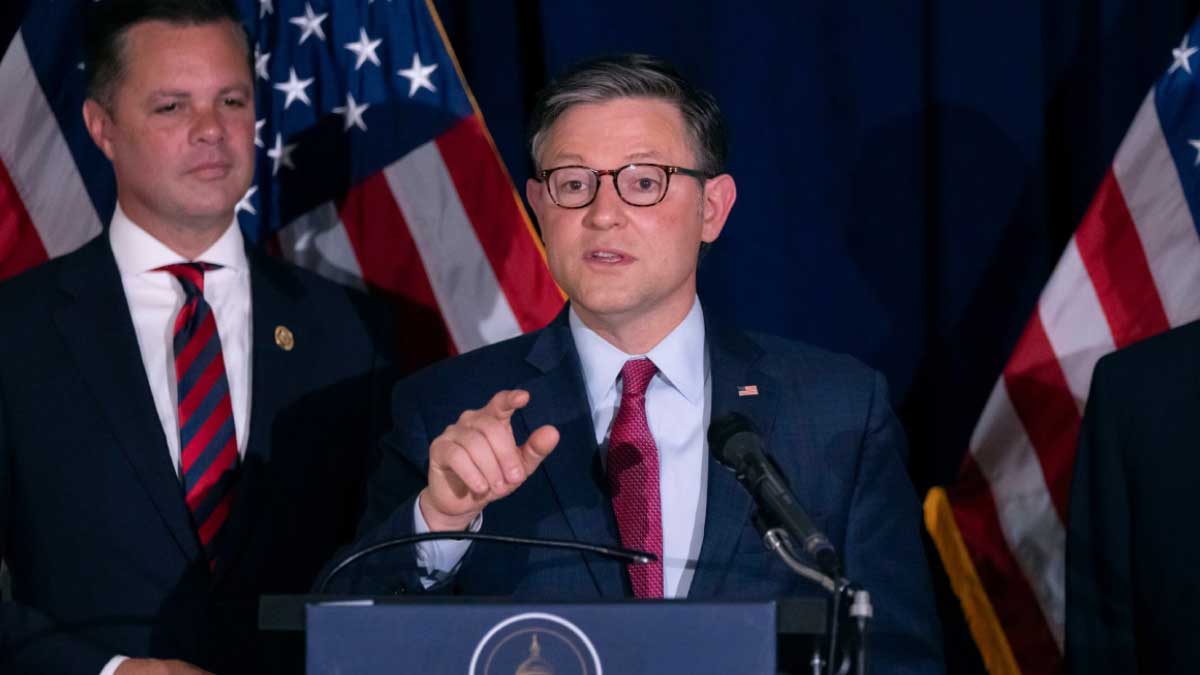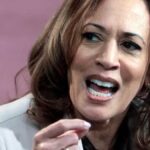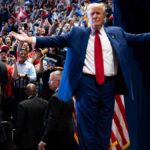- Home
- Billionaires
- Investing Newsletters
- 193CC 1000
- Article Layout 2
- Article Layout 3
- Article Layout 4
- Article Layout 5
- Article Layout 6
- Article Layout 7
- Article Layout 8
- Article Layout 9
- Article Layout 10
- Article Layout 11
- Article Layout 12
- Article Layout 13
- Article Layout 14
- Article Sidebar
- Post Format
- pages
- Archive Layouts
- Post Gallery
- Post Video Background
- Post Review
- Sponsored Post
- Leadership
- Business
- Money
- Small Business
- Innovation
- Shop
Recent Posts
House Rejection of Funding Bill Raises Shutdown Risk

The threat of a government shutdown looms larger following the House’s rejection of Speaker Mike Johnson’s proposed stopgap measure. The bill, introduced by the Louisiana Republican, aimed to extend federal funding and avert a shutdown. However, it failed to secure enough support, with 220 votes against and 202 in favor, revealing significant divisions within the Republican Party and highlighting the challenge of reaching a consensus on funding solutions.
The proposed legislation was designed to keep the government operational through March 2025. It included provisions that drew sharp criticism, particularly the SAVE ACT, a voting measure championed by former President Donald Trump. This act sought to enforce stricter voter identification requirements, demanding proof of citizenship for participation in federal elections. Despite its controversial nature, Trump and his supporters argue that it is crucial for preventing non-citizen voting, a claim that research and public officials have largely debunked. Studies have consistently shown that incidents of non-citizen voting are exceedingly rare.
The SAVE ACT’s inclusion in the bill was a major sticking point, leading to the bill’s rejection. Democrats opposed the measure, arguing that it was an unnecessary and politically motivated addition to the funding legislation. They advocate for a shorter-term funding solution, preferring a three-month extension over the six-month period proposed by Johnson. This preference for a shorter duration reflects their desire to avoid prolonged uncertainty and maintain a more flexible approach to federal budgeting.
With less than two weeks remaining before a potential government shutdown, lawmakers face mounting pressure to find an alternative funding solution. The possibility of a shutdown becomes particularly contentious as it would occur just over a month before the upcoming elections, adding a layer of political urgency to the situation. The potential shutdown would have widespread implications, including the suspension of nonessential government services and furloughs for federal workers. National parks and Smithsonian museums would close, although Social Security and Veterans Affairs benefits would continue unaffected.
In the midst of these negotiations, Trump has been vocal about his stance, urging Republicans to hold firm on the SAVE ACT. In a recent post on Truth Social, he criticized Democrats, accusing them of facilitating illegal voting practices. His claims, however, lack credible evidence and have been contradicted by multiple studies and public officials who emphasize that non-citizen voting is not a significant issue. The Scripps/Ipsos poll of 1,027 adults reveals that while concerns about non-citizen voting exist among many Americans, there is no substantial evidence supporting the notion that Democrats are engaging in illegal immigration for electoral gain.
The current funding impasse marks the second major battle over government spending this year. Earlier in March, President Joe Biden signed a $1.2 trillion spending bill after months of temporary fixes and negotiations. The current situation underscores the continued difficulty in reaching a bipartisan agreement on federal funding and highlights the ongoing tensions within Congress over fiscal policies.
As the deadline approaches, the focus remains on finding a viable compromise that can prevent a shutdown and ensure the continued functioning of the federal government. The debate over the SAVE ACT and the broader funding measure reflects the deep-seated divisions in Congress and the complex interplay of politics and policy in the lead-up to an election year.
In summary, the rejection of Speaker Mike Johnson’s bill intensifies the risk of a government shutdown, with significant implications for federal operations and public services. The contentious inclusion of the SAVE ACT and the stark divide between Republicans and Democrats underscore the challenges facing lawmakers as they strive to address funding issues and navigate the political landscape in a critical period.
Recent Posts
Categories
- 193 Countries Consortium Partner1
- 193cc Digital Assets2
- 5G1
- Aerospace & Defense48
- AI37
- Arts3
- Banking & Insurance11
- Big Data3
- Billionaires1,467
- Boats & Planes1
- Business332
- Careers13
- Cars & Bikes79
- CEO Network1
- CFO Network17
- CHRO Network1
- CIO Network1
- Cloud10
- CMO Network18
- Commercial Real Estate7
- Consultant1
- Consumer Tech194
- CxO1
- Cybersecurity73
- Dining1
- Diversity, Equity & Inclusion4
- Education7
- Energy8
- Enterprise Tech29
- Events11
- Fintech1
- Food & Drink2
- Franchises1
- Freelance1
- Future Of Work2
- Games149
- GIG1
- Healthcare79
- Hollywood & Entertainment203
- Houses1
- India’s 1000 Richest1
- Innovation46
- Investing2
- Investing Newsletters4
- Leadership65
- Lifestyle11
- Manufacturing1
- Markets20
- Media327
- Mobile phone1
- Money13
- Personal Finance2
- Policy569
- Real Estate1
- Research6
- Retail1
- Retirement1
- Small Business1
- SportsMoney42
- Style & Beauty1
- Success Income1
- Taxes2
- Travel10
- Uncategorized14
- Vices1
- Watches & Jewelry2
- world's billionaires1,436
- Worlds Richest Self-Made Women2
Related Articles
South Korea Plane Crash: A Tragic Loss and Global Mourning
The tragic plane crash at South Korea’s Muan International Airport on Sunday...
By 193cc Agency CouncilDecember 30, 2024H-1B Visa Debate Splits Trump Allies and Silicon Valley
The debate over H-1B visas has once again become a contentious issue,...
By 193cc Agency CouncilDecember 28, 2024Trump Moves $4B Stake in Truth Social Parent, Stock Drops 6%
Donald Trump recently transferred his 57% stake in Trump Media & Technology...
By 193cc Agency CouncilDecember 20, 2024House Rejects Trump-Backed Funding Bill, Shutdown Looms
The U.S. House of Representatives rejected a new government funding bill on...
By 193cc Agency CouncilDecember 20, 2024















Leave a comment